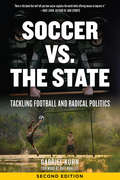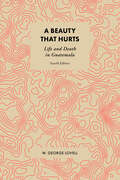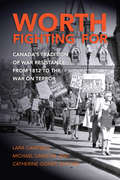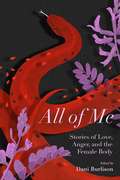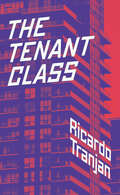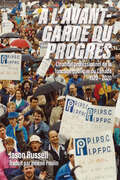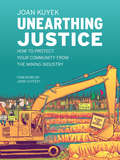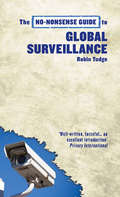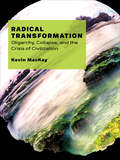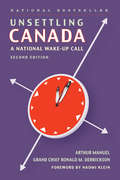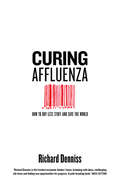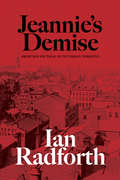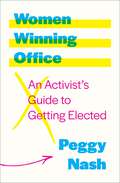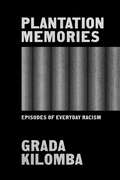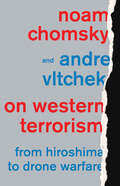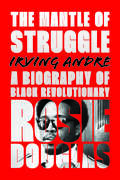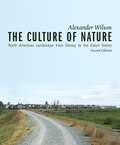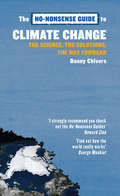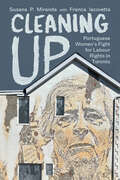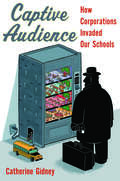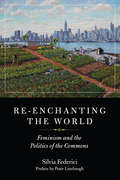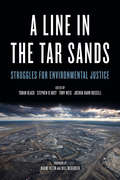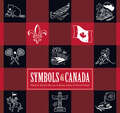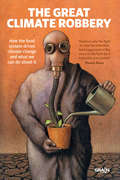- Table View
- List View
Half Light
by Frances HegartyThe finest medical gauze, sharp instruments for delicate probing, linseed oil... these were a few of the tools of Elisabeth Young's trade. A restorer of paintings, she delighted in her tasks: to clean, patch, fill in, and revarnish until the work gave up its secrets and glowed in its original glory. Alone in her London flat, Elisabeth savored the tranquility demanded by both her craft and her soul... a gently guarded peace shared solely with her latest lover, Francis Thurloe. Amiable, patrician, unconscious of his assumption that adoration was his birthright, the handsome barrister felt thwarted by Elisabeth's baffling mix of sensual generosity and emotional reserve. She did not confront, demand, or whine... nor did she confide her mounting anxiety over the suspicion that she was being followed wherever she went. And when she accepted an offer to restore a wealthy collector's paintings, stored in his cavernous mansion flat, no one knew that Elisabeth Young was about to disappear... When the police find her car abandoned, and her flat tidy, with trash put out, their interest lapses: woman picked up and left, as single women do... .no family, no close friends, not to worry, she'll turn up. But Francis, worried, begins a search that leads him to Annie Macalpine, an antiques dealer whose spiked-hair, lowbrow stance hides the bravest and hungriest of hearts... Enid Daley, Elisabeth's self-appointed concierge, whose jealousy of her winsome, serene neighbor curdles with venom... Thomas Milton, a patron of the arts whose private demons have forged a brutal sense of entitlement... Maria Milton, his sister, grotesque in form and speech, but solaced by severe religious rituals... Butler, Thomas's companion, ferociously loyal and trained to attack without mercy. As a madman's vise tightens around the trapped Elisabeth, Francis and Annie hunt frantically for his elegant prison, where beautiful works of art are coaxed to life... only to be savagely destroyed... .
Soccer vs. the State: Tackling Football and Radical Politics, Second Edition
by Gabriel KuhnSoccer has turned into a multi-billion-dollar industry. Professionalism and commercialization dominate its global image. Yet the game retains a rebellious side, maybe more so than any other sport co-opted by money makers and corrupt politicians. From its roots in working-class England to political protests by players and fans, and a current radical soccer underground, the notion of football as the “people’s game” has been kept alive by numerous individuals, teams, and communities. This book not only traces this history, but also reflects on common criticisms: soccer ferments nationalism, serves right-wing powers, and fosters competitiveness. Acknowledging these concerns, alternative perspectives on the game are explored, down to practical examples of egalitarian DIY soccer! Soccer vs. the State serves both as an orientation for the politically conscious football supporter and as an inspiration for those who try to pursue the love of the game away from televisions and big stadiums, bringing it to back alleys and muddy pastures. This second edition has been expanded to cover events of recent years, including the involvement of soccer fans in the Middle Eastern uprisings of 2011–2013, the FIFA scandal of 2015, and the 2017 strike by the Danish women’s team.
A Beauty that Hurts: Life and Death in Guatemala
by W. George LovellWhen A Beauty That Hurts first appeared in 1995, Guatemala was one of the world’s most flagrant violators of human rights. An accord brokered by the United Nations brought a measure of peace after three decades of armed conflict, but the country’s troubles are far from over. George Lovell revisits Guatemala to grapple once again with the terror inflicted on its Maya peoples by a military-dominated state.
Worth Fighting For: Canada’s Tradition of War Resistance from 1812 to the War on Terror
by Lara Campbell, Michael Dawson, and Catherine GidneyHistorians, veterans, museums, and public education campaigns have all documented and commemorated the experience of Canadians in times of war. But Canada also has a long, rich, and important historical tradition of resistance to both war and militarization. This collection brings together the work of sixteen scholars on the history of war resistance. Together they explore resistance to specific wars (including the South African War, the First and Second World Wars, and Vietnam), the ideology and nature of resistance (national, ethical, political, spiritual), and organized activism against militarization (such as cadet training, the Cold War, and nuclear arms). As the federal government continues to support the commemoration and celebration of Canada’s participation in past wars, this collection offers a timely response that explores the complexity of Canada’s position in times of war and the role of social movements in challenging the militarization of Canadian society.
All of Me: Stories of Love, Anger, and the Female Body
by Dani BurlissonWith women’s anger, empowerment, and the critical importance of intersectional feminism taking center stage in much of the dialogue happening in feminist spaces right now, an anthology like this has never been more important. The voices in this collection of essays and interviews offer perspectives and experiences that help women find common ground, unity, and allyship. Through personal essays and interviews about what it is like to live as a woman (cis + trans) in this modern world—with all of our love, anger, complexities, and desires for justice—All of Me: Stories of Love, Anger, and the Female Body includes vulnerable, painful truths and bold inspiration. This anthology is for seasoned feminists and young feminists alike—anyone looking to find inspiration in radical activism, creativity, healing, and more. This book covers topics of social and economic justice, creativity, racism, transgender perspectives, sexuality, sex work, addiction and recovery, reproductive rights, assault, relationship dynamics, families, fitting and not fitting in, radical self-care, witchcraft, and more. If love and anger are two sides of the same coin, for women there are worlds to be explored with every flip of that coin. Readers will find a glimpse into those worlds in the pages of All of Me. Contributors include Silvia Federici, Michelle Cruz Gonzales, Ariel Gore, Laurie Penny, Lidia Yuknavitch, Christine No, Kandis Williams, Vatan Doost, Deya, Phoenix LeFae, Anna Silastre, Michel Wing, Bethany Ridenour, Lorelle Saxena, Airial Clark, Patty Stonefish, Nayomi Munaweera, Melissa Madera, Margaret Elysia Garcia, Leilani Clark, Ariel Erskine, Wendy-O Matik, Kara Vernor, Starhawk, adrienne maree brown, Gerri Ravyn Stanfield, Sanam Mahloudji, Melissa Chadburn, Avery Erickson, and Milla Prince.
The Tenant Class
by Ricardo TranjanIn this trailblazing manifesto, political economist Ricardo Tranjan places tenants and landlords on either side of the class divide that splits North American society. What if there is no housing crisis, but instead a housing market working exactly as intended? What if rent hikes and eviction notices aren’t the work of the invisible hand of the market, but of a parasitic elite systematically funneling wealth away from working-class families? With clarity and precision, Tranjan breaks down pervasive myths about renters, mom-and-pop landlords, and housing affordability. In a society where home ownership is seen as the most important hallmark of a successful life, Tranjan refuses to absolve the landlords and governments that reap massive profits from the status quo. The tenant class must face powerful systems of disinformation and exploitation to secure decent homes and fair rent. Drawing upon a long, inspiring history of collective action in Canada, Tranjan argues that organized tenants have the power to fight back.
À L’avant-garde du progrès: L’Institut professionnel de la fonction publique du Canada 1920–2020
by Jason RussellLe 6 février 1920, un petit groupe d’employés de la fonction publique se réunit pour la première fois afin de former une association professionnelle. Un siècle plus tard, l’Institut professionnel de la fonction publique du Canada (IPFPC) est un agent négociateur représentant près de 60 000 travailleurs du secteur public dont les efforts pour le bien collectif améliorent la vie de chaque Canadien. Publié à l’occasion du 100e anniversaire de fondation de l’IPFPC, À l’avant-garde du progrès dresse le portrait complet de son évolution, de 1920 à aujourd’hui, et lève le voile sur un pan souvent négligé de l’histoire syndicale nord-américaine. L’auteur, Jason Russell, s’appuie sur une abondante collection de sources, dont des documents d’archives et des témoignages de dizaines de membres actuels et passés de l’IPFPC. Marquée par des réussites et semée d’embûches, l’histoire est complexe et racontée avec clarté et modération. Après des décennies de changements démographiques et générationnels, de booms et de crises économiques et de bouleversements politiques, les membres de l’IPFPC entament les cent prochaines années guidés par la même mission importante que celle qui les a inspirés jusqu’à présent : militer pour une justice sociale et économique pour le bien de tous les Canadiens et Canadiennes.
Unearthing Justice: How to Protect Your Community from the Mining Industry
by Joan KuyekThe mining industry continues to be at the forefront of colonial dispossession around the world. It controls information about its intrinsic costs and benefits, propagates myths about its contribution to the economy, shapes government policy and regulation, and deals ruthlessly with its opponents. Brimming with case studies, anecdotes, resources, and illustrations, Unearthing Justice exposes the mining process and its externalized impacts on the environment, Indigenous Peoples, communities, workers, and governments. But, most importantly, the book shows how people are fighting back. Whether it is to stop a mine before it starts, to get an abandoned mine cleaned up, to change laws and policy, or to mount a campaign to influence investors, Unearthing Justice is an essential handbook for anyone trying to protect the places and people they love.
No-Nonsense Guide to Global Surveillance (No-Nonsense Guides #10)
by Robin TudgeSpying, once solely the domain of the KGB, CIA, CSIS, and MI5, has become part of everyday life. Governments routinely trawl our emails, closed-circuit security cameras follow us in malls, office buildings, and on street corners, while databases of our DNA and other personal details become larger all the time. This No-Nonsense Guide provides a well-researched look into the history of surveillance and how the process is carried out today with the aid of technology and often, lack of express consent.
Radical Transformation: Oligarchy, Collapse, and the Crisis of Civilization
by Kevin MacKayRadical Transformation is a story about industrial civilization’s impending collapse, and about the possibilities of averting this fate. Human communities first emerged as egalitarian, democratic groups that existed in symbiotic relationship with their environments. Increasing complexity led to the emergence of oligarchy, in which societies became captive to the logic of domination, exploitation, and ecological destruction. The challenge facing us today is to build a movement that will radically transform civilization and once more align our evolutionary trajectory in the direction of democracy, equality, and ecological sustainability.
Unsettling Canada: A National Wake-up Call
by Arthur Manuel Grand Chief Ronald M. DerricksonA Canadian bestseller and winner of the 2016 Canadian Historical Association Aboriginal History Book Prize, Unsettling Canada is a landmark text built on a unique collaboration between two First Nations leaders. Arthur Manuel (1951–2017) was one of the most forceful advocates for Indigenous title and rights in Canada; Grand Chief Ron Derrickson, one of the most successful Indigenous businessmen in the country. Together, they bring a fresh perspective and bold new ideas to Canada’s most glaring piece of unfinished business: the place of Indigenous peoples within the country’s political and economic space. This vital second edition features a foreword by award-winning activist Naomi Klein and an all-new chapter co-authored by law professor Nicole Schabus and Manuel’s daughter, Kanahus, honouring the multi-generational legacy of the Manuel family’s work.
Curing Affluenza: How to Buy Less Stuff and Save the World
by Richard DennissAffluenza has not just changed the world, it has also changed the way we see the world. Short of money? Borrow some. Caught in the rain? Buy an umbrella. Thirsty? Buy a bottle of water and throw the bottle away. Our embrace of “convenience” and our acceptance of our inability to plan ahead is an entirely new way of thinking, and over the past seventy years we have built a new and different economic system to accommodate it. There is nothing inevitable about this current way of thinking, consuming, and producing. On the contrary, the vast majority of humans who have ever lived would find the idea of using our scarce resources to produce things that are designed to be thrown away absolutely senseless. The fact that our consumer culture is a recent innovation does not mean it will be easy to change. Indeed, the last few decades have shown how contagious affluenza can be. But we have not always lived this way, which proves that we don’t have to persist with it. We can change—if we want to.
Jeannie’s Demise: Abortion on Trial in Victorian Toronto
by Ian RadforthAugust 1, 1875, Toronto: The naked body of a young woman is discovered in a pine box, half-buried in a ditch along Bloor Street. So begins Jeannie’s Demise, a real-life Victorian melodrama that played out in the bustling streets and courtrooms of “Toronto the Good,” cast with all the lurid stock characters of the genre. Historian Ian Radforth brings to life an era in which abortion was illegal, criminal proceedings were a spectator sport, and coded advertisements for back-alley procedures ran in the margins of newspapers. At the centre of the story is the elusive and doomed Jeannie Gilmour, a minister’s daughter whose independent spirit can only be glimpsed through secondhand accounts and courtroom reports. As rumours swirl about her final weeks and her abortionists stand trial for their lives, a riveted public grapples with questions of guilt and justice, innocence and intent. Radforth’s intensive research grounds the tragedy of Jeannie’s demise in sharp historical analysis, presenting over a dozen case studies of similar trials in Victorian-era Canada. Part gripping procedural, part meticulous autopsy, Jeannie’s Demise opens a rare window into the hidden history of a woman’s right to choose.
Women Winning Office: An Activist’s Guide to Getting Elected
by Peggy NashWhen Peggy Nash first decided to run for elected office, she had no idea where to start, who to contact, or what the rules were. For those who are underrepresented in political life, politics can seem like a secret society designed to shut them out. Women Winning Office is a practical handbook for activist women on how to open doors and take their place in the political process. Find out how to build a team, get nominated, inspire volunteers, and canvass voters. Nash draws on her experience in five federal campaigns, as well as the stories of many inspiring Canadian women who have run for office at all levels of government. Some succeeded; some did not. Some faced difficult and painful experiences. Every one of them would do it again. To make real progressive change, we need to change not only who gets elected in Canada, but how our democracy functions. If you want to find out how to take your desire for a better world into elected office, this book is for you.
Plantation Memories: Episodes of Everyday Racism
by Grada KilombaPlantation Memories is a compilation of episodes of everyday racism written in the form of short psychoanalytical stories. From the question “Where do you come from?” to Hair Politics to the N-word, the book is a strong, eloquent, and elaborate piece that deconstructs the normality of everyday racism and exposes the violence of being placed as the Other. Released at the Berlin International Literature Festival in 2008, soon the book became internationally acclaimed and part of numerous academic curricula. Known for her subversive practice of giving body, voice, and image to her own texts, Grada Kilomba has adapted her book into a staged reading and video installation. Plantation Memories is an important contribution to the global cultural discourse.
On Western Terrorism: From Hiroshima to Drone Warfare
by Noam Chomsky Andre VltchekIn On Western Terrorism Noam Chomsky, world-renowned dissident intellectual, discusses Western power and propaganda with filmmaker and investigative journalist Andre Vltchek. The discussion weaves historical narrative with the two men’s personal experiences, which have led them to a life of activism. Beginning with the New York newsstand where Chomsky first began his political education as a teenager, the discussion broadens out to the shifting forms of imperial control and the Western propaganda apparatus. Along the way Chomsky and Vltchek touch upon many countries of which they have personal experience, including Nicaragua, Cuba, China, Chile, and Turkey. A blast of fresh air which blows away the cobwebs of propaganda and deception, On Western Terrorism is a powerful critique of the West’s role in the world and a testament to two lives dedicated to humanism, activism, and the search for knowledge.
The Mantle of Struggle: A Biography of Black Revolutionary Rosie Douglas
by Irving AndreRosie Douglas, former prime minister of Dominica, had a life unlike any other modern politician. After leaving home to study agriculture in Canada, he became a member of the young Conservatives, under the Canadian prime minister’s guidance. However, after he moved to Montreal to study political science his politics started to shift. By the late sixties he was an active civil rights supporter and when Black students in Montreal began to protest racism in 1969, he helped lead the sit-in. He was identified as a protest ringleader after the peaceful protest turned into a police riot, and served 18 months in prison. After his deportation from Canada in 1976, having been named a danger to national security, Douglas participated in political movements around the world building global solidarity. He became a leader of the Libyan-based revolutionary group World Mathaba and supported Nelson Mandela’s African National Congress. Once back home in Dominica, he led the movement for Dominica’s full political independence from Great Britain, then served as a senator in the post-independence government, an MP, party leader, and finally prime minister. Relying on family sources, interviews, newspaper articles, government documents, and Douglas’ own articles, letters, and speeches, Irving Andre has drawn a rich and riveting record of this important Black revolutionary.
The Culture of Nature: North American Landscape from Disney to Exxon Valdez
by Alexander WilsonSince it was first published in 1991, few books have come close to capturing the depth and breadth of Alexander Wilson’s innovative ecocultural compendium The Culture of Nature. His work was one of the first of its kind to investigate the ideology of the environment, to critique the future according to Disney, and illustrate that the ways we think, teach, talk about, and construct the natural world are as important a terrain as the land itself. Extensively illustrated and meticulously researched, this edition is exquisitely revised and reissued for the Anthropocene.
No-Nonsense Guide to Climate Change: The Science, the Solutions, the Way Forward (No-Nonsense Guides #3)
by Danny ChiversJust as the need for action on climate change becomes more urgent and overwhelming, the campaign to deny that humans are causing it has gained more traction. This completely new book meets the skeptics head on, offering a guide to the science, an insight into the politics of climate justice and a clear sense of the way forward. This is an ideal offering for students, academics and anyone interested in the growing issue of society’s impact on climate change and how to make climate justice a reality.
Cleaning Up: Portuguese Women’s Fight for Labour Rights in Toronto
by Susana P. MirandaThis fascinating book uncovers the little-known, surprisingly radical history of the Portuguese immigrant women who worked as night-time office cleaners and daytime “cleaning ladies” in postwar Toronto. Drawing on union records, newspapers, and interviews, feminist labour historians Susana P. Miranda and Franca Iacovetta piece together the lives of immigrant women who bucked convention by reshaping domestic labour and by leading union drives, striking for workers’ rights, and taking on corporate capital in the heart of Toronto’s financial district. Despite being sidelined within the labour movement and subjected to harsh working conditions in the commercial cleaning industry, the women forged critical alliances with local activists to shape picket-line culture and make an indelible mark on their communities. Richly detailed and engagingly written, Cleaning Up is an archival treasure about an undersung piece of working-class history in urban North America.
Captive Audience: How Corporations Invaded Our Schools
by Catherine GidneyWhite Spot, a popular BC restaurant chain, solicits hamburger concepts from third and fourth grade students and one of the student’s ideas becomes a feature on the kids’ menu. Home Depot donates playground equipment to an elementary school, and the ribbon-cutting ceremony culminates in a community swathed in corporate swag, temporary tattoos, and a new “Home Depot song” written by a teacher and sung by the children. Kindergarten students return home with a school district-prescribed dental hygiene flyer featuring a maze leading to a tube of Crest toothpaste. Schools receive five cents for each flyer handed to a student. While commercialism has existed in our schools for over a century, the corporate invasion of our schools reached unprecedented heights in the 1990s and 2000s after two decades of federal funding cuts and an increasing tendency to apply business models to the education system. Constant cutbacks have left school trustees, administrators, teachers, and parents with difficult decisions about how to finance programs and support students. Meanwhile, studies on the impact of advertising and consumer culture on children make clear that the effects are harmful both to the individual child and the broader culture. Captive Audience explores this compelling history of branding the classroom in Canada.
Re-enchanting the World: Feminism and the Politics of the Commons
by Silvia FedericiDrawing on rich historical research, Silvia Federici maps the connections between the previous forms of enclosure that occurred with the birth of capitalism and the destruction of the commons and the “new enclosures” at the heart of the present phase of global capitalist accumulation. Considering the commons from a feminist perspective, this collection centers on women and reproductive work as crucial to both our economic survival and the construction of a world free from the hierarchies and divisions capital has planted in the body of the world proletariat. Federici is clear that the commons should not be understood as happy islands in a sea of exploitative relations but rather autonomous spaces from which to challenge the existing capitalist organization of life and labour.
A Line in the Tar Sands: Struggles for Environmental Justice
by Black, Toban; D'Arcy, Stephen; Weis, Tony; Kahn Russell, Joshua; Klein, Naomi; McKibben, BillTar sands “development” comes with an enormous environmental and human cost. But tar sands opponents—fighting a powerful international industry—are likened to terrorists; government environmental scientists are muzzled; and public hearings are concealed and rushed. Yet, despite the formidable political and economic power behind the tar sands, many opponents are actively building international networks of resistance, challenging pipeline plans while resisting threats to Indigenous sovereignty and democratic participation. Featuring contributions from Winona LaDuke, Bill McKibben, Naomi Klein, Clayton Thomas-Muller, Harsha Walia, Jeremy Brecher, Crystal Lameman, Melina Laboucan-Massimo, Yves Engler, Cherri Foytlin, Macdonald Stainsby, Yudith Nieto, Greg Albo, Brian Tokar, Jesse Cardinal, Rex Weyler, Jess Worth, and many more. The editors’ proceeds from this book will be donated to frontline grassroots environmental justice groups and campaigns.
Symbols of Canada
by Michael Dawson Catherine Gidney Donald WrightFrom Timbits to totem poles, Canada is boiled down to its syrupy core in symbolic forms that are reproduced not only on t-shirts, television ads, and tattoos but in classrooms, museums, and courtrooms too. They can be found in every home and in every public space. They come in many forms, from objects—like the red-uniformed Mountie, the maple leaf, and the beaver—to concepts—like free healthcare, peacekeeping, and saying “eh?”. But where did these symbols come from, what do they mean, and how have their meanings changed over time? Symbols of Canada gives us the real and surprising truth behind the most iconic Canadian symbols revealing their contentious and often contested histories. With over 100 images, this book thoroughly explores Canada’s true self while highlighting the unexpected twists and turns that have marked each symbol’s history.
The Great Climate Robbery: How the Food System Drives Climate Change and What We Can Do About It
by GRAINThe Great Climate Robbery connects analysis of the food system to larger issues affecting the planet, and link peoples’ struggles over food to climate change. This book will help readers to understand the ways in which corporations control the food system and provide the analysis needed to challenge this control.

